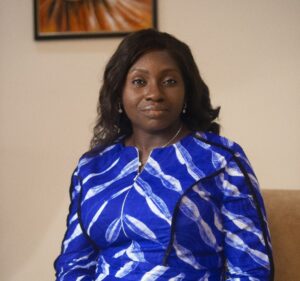Enock Chisati, CARTA cohort 7 graduate from Kamuzu University of Health Sciences (KUHeS), previously the University of Malawi, was recently promoted to the rank of Associate Professor of Exercise Physiology in the Department of Rehabilitation Sciences at the institution. He holds a PhD in Exercise Physiology obtained from the University of Malawi, College of Medicine in 2020, and a Master of Science Degree in Exercise Physiology and Sports Sciences from the Norwegian University of Science and Technology (NTNU), Norway in 2014.
Talking to CARTA communications, Enock elaborates on his academic and professional journey and shares what he believes has contributed to his growth. Here is what he had to say…..
When did you join KUHeS and how has your career progressed over time?
I joined the university in 2011 as an Assistant Lecturer and from there, I have held various responsibilities as I grew to my most recent position as Senior Lecturer (2018 to 2020): Coordinator of years 2 and 4 of the Bachelor of Physiotherapy program (2014 to 2016), Deputy Head of the Physiotherapy Department (2014 to 2016) and Head of the Physiotherapy Department (2016 to 2020).
I am proud to have also been appointed to other responsibilities within and beyond KUHeS. I am a member of the Academic Standards and Compliance Committee (ASCCo), a subcommittee of the KUHeS senate. Since 2020, I have been the Country Contact for Global Observatory for Physical Activity (GoPA). As a GoPA country representative, I am part of a strong global network of over 164 countries dedicated to physical activity and health research, policies, and surveillance at the national level. Additionally, I am a member of the Malawi Anti-Doping Organisation, an Associate Editor of the Malawi Medical Journal as well as an Academic Editor of the PLOS ONE Journals.
Besides academia, I am passionate about research and my interests are in understanding the beneficial effects of exercise on the underlying mechanisms of human physiology to guide the treatment and prevention of lifestyle diseases and chronic conditions. I also take interest in understanding the effects of exercise on sports performance and injury prevention. I have a number of peer-reviewed publications and book chapters in the area of exercise and health associated with my name (ORCID: https://orcid.org/0000-0001-5596-9386).
What does your recent promotion mean to you?
My recent promotion to the rank of Associate Professor is a great milestone. The role positions me to be one of those authorities who can ably contribute to capacity building and generation of new knowledge in my area of specialty. In addition, my promotion increases the pool of individuals within KUHeS who can be entrusted with important assignments and responsibilities to achieve University goals.
What would you say has contributed to your growth in academia leading up to your promotion?
In addition to my record in teaching as well as administrative duties and responsibilities, my academic and scholarly leadership achievements coupled with my ability to attract funds and resources to KUHeS have contributed to my growth in academia and research ultimately leading to my promotion to the rank of Associate Professor.
In what ways has the CARTA program contributed to your academic and research growth and this promotion?
CARTA made substantial contributions towards my achievement of various milestones including this promotion. One of the criteria for promotion to the rank of Associate Professor was scholarly leadership through publications, and CARTA’s unique training greatly enhanced my research capacity. I honed manuscript-writing skills through aspects such as qualitative and quantitative research methods, journal clubs, scientific blitz, and academic writing offered by the program during the four Joint Advanced Seminars (JASes). Using manuscript writing skills, I was able to produce 10 peer-reviewed publications that were presented for assessment to my application for promotion. I also obtained grant-writing skills through JAS 4 training, which contributed to my acquisition of a $200,000 FIFA-funded research grant, which was also a key consideration for the promotion.
What do you hope to accomplish in your current position?
The Associate Professor rank provides a platform for me to focus on postgraduate research supervision since my teaching load will be reduced. I also intend to continue conducting scholarly research in my area of specialty that contributes relevant knowledge for the public good. This research may sometimes disagree with public opinion or authority but the rank bestows upon me autonomy and freedom to engage in academic dialogue for the public good. In teaching and research, I hope to contribute to capacity building and the generation of new knowledge in the areas of exercise and health in Africa.
Any reflections and advice you would like to share with CARTA fellows and Early Career Researchers (ECRs) in Africa?
I owe most of my career achievements to CARTA. The program offers the best PhD and postdoctoral training relevant to solving key African problems. I, therefore, would like to encourage all CARTA fellows and any African-based ECR to embrace all the CARTA opportunities as they have proven to be effective and relevant for personal and career development as well as the public good.




